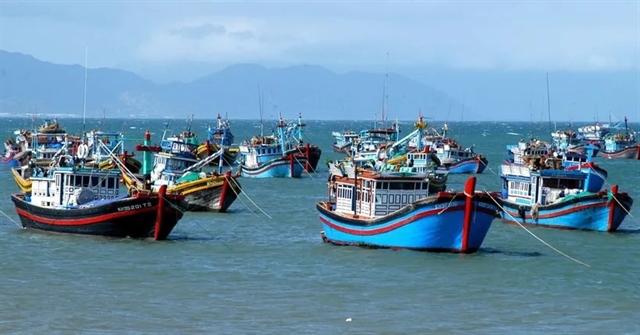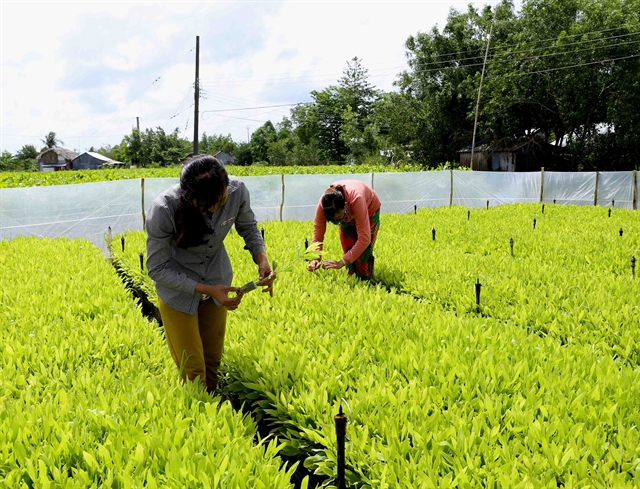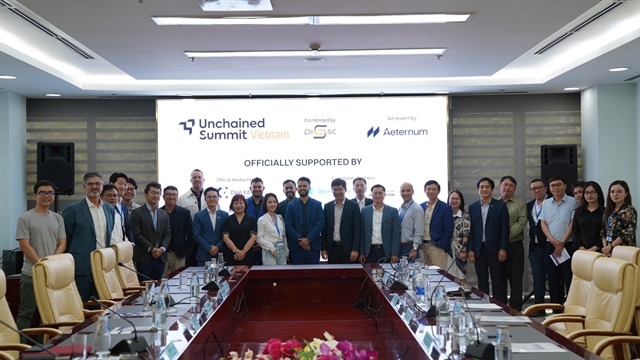 Society
Society


|
CÀ MAU – The Cửu Long (Mekong) Delta province of Cà Mau will mobilise more than VNĐ2.6 trillion (US$11.2 million) from State budget and other sources to expand the use of efficient farming models this year, according to the province’s Farmers Association.
In recent years, as many as 50,300 farming households have taken part in 46 farming models that cost a total of VNĐ36 billion ($1.54 million).
There are various models, including the rotation of rice and shrimp in the same field, super-intensive shrimp farming, and rice farming called “3 reductions and 3 increases".
By reducing the use of seedlings, fertiliser and plant-protection chemicals, the rice model increases productivity, quality and efficiency. Most rice farmers are now using the model.
The province is expanding the models and will implement 132 for aquaculture, 18 for rice and other crops, and 28 for animals.
It will also supply 60,000 forestry seedlings to three forestry farming models on a total area of 70ha.
With this expansion, a total of slightly more than 62,000 farming households will be participating in the farming models.
Under the rice–shrimp farming model, farmers grow rice in the rainy season and breed shrimp in the dry season.
The model produces clean rice and shrimp, and has adapted well to climate change, especially in coastal areas.
The province, the country's largest shrimp producer, has 48,000ha of rice–shrimp farming area and about 278,000ha devoted to shrimp only.
Of the shrimp farming area, about 2,000ha are super-intensive shrimp farms, accounting for 42 per cent of the province’s total shrimp output.
Châu Công Bằng, deputy director of the province’s Department of Agriculture and Rural Development, said that many participating households have had profits of VNĐ500 – 600 million ($21,460 – 25,750) a year.
However, some localities have not chosen farming models suited to their soil and other natural conditions, so the expansion of the models has been slow.
In addition, some farmers have earned low profits, especially shrimp farming models, because of the poor quality of seed, disease outbreaks and poor weather, he said.
These households turned back to old farming methods, he said.
To solve these problems, the province’s People’s Committee has asked the department to offer advanced farming techniques to participating farmers.
The People’s Committee has also encouraged the establishment of co-operatives in which farmers and companies work together to produce and sell goods.
Localities have been told to promote trading activities for agricultural products that have been certified and have a brand name. – VNS




